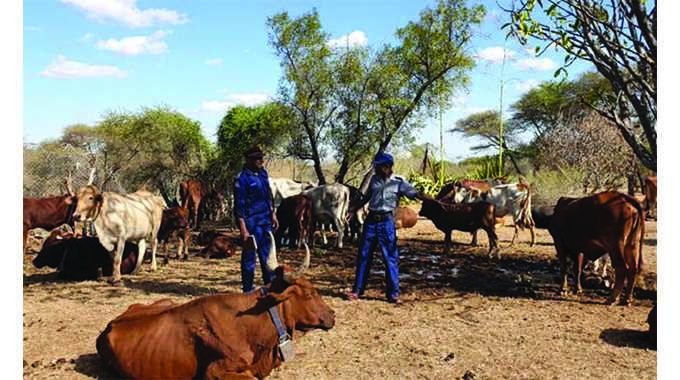CLAIM: Zimbabwe stock theft attracts a stiffer sentence than rape in some instances
SOURCE: Account on X, formerly Twitter
VERDICT: True
While it is true that in Zimbabwe stock theft attracts a stiffer sentence than rape in some instances, its not as simple as that.
Zimbabwe has in the past grappled with inconsistencies in the sentencing patterns for sexual offenders. This led to calls for mandatory sentences and guidelines towards achieving more consistency in sentencing levels. As a result, in 2023, Zimbabwe introduced mandatory sentences for rape.
An account on X, @zvoutete, claimed that stock theft attracts a stiffer sentence than rape in some instances. His full post read, ‘Did you know that in Zimbabwe stock theft attracts a stiffer sentence than rape in some instances?. The mandatory minimum sentence for a person that steals a cow in the absence of extenuating circumstances is 9 years. The mandatory minimum sentence for a person that commits rape (ordinary and not one committed in aggravating circumstances) is 5 years. What this means is that if Muller steals a cow kumusha uko (in the rural areas) and gets convicted he will be sentenced to a minimum sentence of 9 years. If Muller sleeps with a woman without her consent (rapes), he will be sentenced to a minimum sentence of 5 years. This means that he can be sentenced to 5 years or any number of years less than 9 if the magistrate sees it fit. Of course the magistrate can sentence Muller to more than 9 years if he deems it fit. This should not detract from the point I am making. The sentence for stock theft is outrageous to an extent that in some instances a person convicted of rape can be sentenced to a lighter sentence than someone convicted of stealing a cow.’
There are various sexual offences, the most serious of which are rape and aggravated indecent assault, both of which carry a maximum sentence of life imprisonment. However, the lack of mandatory minimum sentences led in some instances, to inadequate sentences not reflecting the seriousness of the crime or it’s impact on the victim/survivor.
In 2015, in a case where a 54 year old accused was convicted of 5 counts of rape involving a 14 year old who was also the accused’s stepdaughter, the sentence was an effective 16 years.
In reviewing this, a judge, who thought it too lenient, commented that, ‘I should confess that my sense of justice was offended by the sentence imposed by the learned Regional Magistrate who dealt with this matter’.
The mandatory minimum sentences were introduced to address these challenges. But is the mandatory minimum sentence for rape lower than that of stock theft?
In terms of section 114(2)(e) of the Criminal Law (Codification and Reform) Act [Chapter 9:23] there is a mandatory sentence of between nine (9) years and 25 years imprisonment for stock theft where there are no special circumstances in the particular case.

In contrast, for rape, Section 65 states that ‘(i) if the crime was committed in aggravating circumstances as described in subsection (2) (that is to say if there is a finding adverse to the accused on any one or more of those factors), to life imprisonment or any definite period of imprisonment of not less than fifteen years; or (ii) if there are no aggravating circumstances, to a period of not less than five (5) years and not more than fifteen (15) years’.
This means that for rape with no aggravating circumstances, the mandatory minimum sentence is 5 years and maximum is fifteen.
And where there are aggravating circumstances, the mandatory minimum is 15 years and maximum is life.
On the other hand, for stock theft, with no special circumstances the minimum is 9 years and can be lower if the special circumstances exist. For example, in State vs S. Kambuzuma, the accused who had stolen 4 beasts was sentenced to 5 years wholly suspended on condition that he paid restitution.
This means that the mandatory minimum sentence for rape is determined by the presence or absence of aggravating circumstances, while for stock theft, the mandatory minimum sentence is determined by the absence or presence of special circumstances.
To use the same example of Muller, this means that if Muller steals a cow with no special circumstances he gets between 9 and 25 years. He gets less than 9 years if the magistrate finds special circumstances.
If Muller rapes a woman, he gets between 5 and 15 years. And if there are aggravating circumstances, he gets between 15 years and life imprisonment.
This means that if there are special circumstances, Muller can get 2 years for stock theft as in this case (or any number below 9 years) but will never get less than 5 years for rape under any circumstances.
Conclusion
While it is true as claimed that ‘Zimbabwe stock theft attracts a stiffer sentence than rape in some instances’, it is a bit more complicated than that. A convicted rapist will get a mandatory minimum sentence of 5 years to a maximum of 15 where there are no aggravating circumstances, and from 15 years to a maximum of life where they exist. On stock theft, on the other hand, a convicted thief gets a mandatory minimum of 9 years to a maximum of 25 but can get as low as a wholly suspended sentence where a court finds special circumstances to exist.











